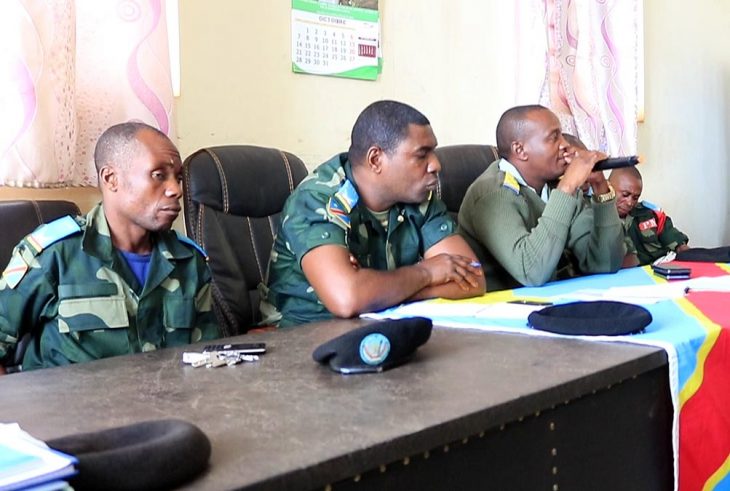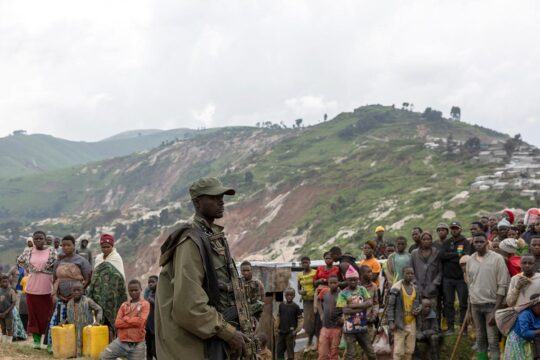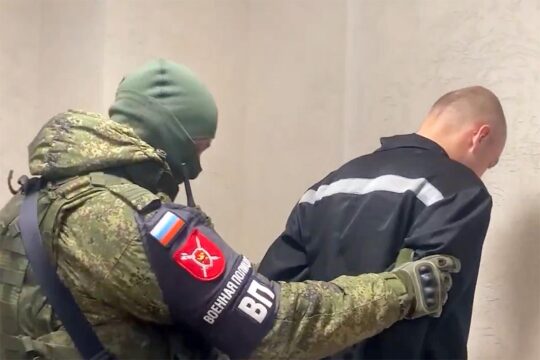JUSTICEINFO.NET: How did the justice system work in the “Koko di koko” case?

DANIELE PERISSI: There are several positive elements to welcome in this case. First, the fact that the investigation was conducted in a prompt and effective manner and that the trial took place quickly after the facts. Koko di koko was arrested in the spring of 2019 and the crimes in question date back to 2018. Some crimes committed more than ten years ago are still under investigation. Another satisfactory element is the holding of mobile courts at the crime scenes to hear the victims in Mwenga and Shabunda. We encourage this practice, which facilitates victims' access to justice and their testimony, raises awareness among the local population and benefits the understanding of judges. Victims who had not had the opportunity to be heard during the investigation were able to appear during the trial and their testimony taken into account. Despite these positive points, the difficult security conditions discouraged some witnesses from testifying. Zero risk does not exist in such an unstable area as Eastern DRC, but it is rare for people to give up their right of access to justice because of intimidation.
Have the rights of the defence been limited by witness protection?
The court assesses these protective measures on a case-by-case basis. It protects both victims and witnesses and the accused's right to a fair trial, thus achieving a balance between the rights of the defence and the safety of witnesses. In the present case, the protective measures did not prevent the accused from putting forward their arguments, questioning the victims and witnesses and calling other witnesses of their choice. The rights of the defence have therefore been respected.
This trial is a step in the right direction and contributes, in the long term, to the pacification of South Kivu and the promotion of the rule of law.
Why is this trial so important in Congo?
President Felix Tshisekedi has made the fight against militias in eastern DRC one of the priorities of his election campaign. These groups pose an unacceptable threat to civilians. This trial is a step in the right direction and contributes, in the long term, to the pacification of South Kivu and the promotion of the rule of law. Other warlords have recently faced justice: the “Moroccan” and his accomplice "106" – perpetrators of the crimes of Kamananga and Lumenje – and of course Sheka in the neighbouring province of North Kivu. However, it should not be forgotten that government forces are guilty of serious crimes: police officers, FARDC officers and even politicians such as Frédéric Batumike in the Kavumu case. No one should be above the law. The fight against militias should not be transformed into a two tier justice system!
Since the 2018 presidential election, some cases seem to have been frozen, such as the Sheka case. Why?
The Sheka trial is certainly very long, but it is not necessarily a bad thing. The facts are complex, the crimes in question span five years and hundreds of square kilometers, straddling two territories in North Kivu. It takes time to shed light on all this. In addition, the security system is cumbersome and complex, it delays hearings. But it is also what can allow victims to testify without fearing for their lives: it is therefore essential. It must be understood that the Sheka case is being investigated in parallel with other cases in North Kivu. Unlike in the Koko di koko case, judges do not work full-time. In addition, delaying measures used by the defence have resulted in excessive lengths. And the recent transfer of one of the judges from the operational military court has produced an additional delay. Despite these difficulties, we are confident that a quality decision can be reached, which will set a precedent in North Kivu.
What are the major trials expected in 2020?
Several mass crime cases are at the investigation stage in the two provinces of South Kivu and North Kivu, such as the case against rebel leader Shimirayi Mwisha Guidon, for whom the military prosecutor issued an arrest warrant a few months ago. We do not know what cases the Congolese justice system will refer to trial in 2020, but there will certainly be a lot of work to be done in prosecuting those responsible for serious crimes in Eastern DRC.
What can be done to aim "higher" in terms of responsibilities?
It is very important that the State redoubles its efforts to fight impunity in the coming years. It is essential to be able to consolidate the lessons learned and face the challenges that still exist, such as reparations and sanctions for the "highest" officials. In this regard, the political will expressed by the President to punish the perpetrators of serious crimes must be translated into concrete commitments.
THE RESPONSIBILITY OF THE CONGOLESE STATE
The Koko di Koko trial lasted two months, during which the prosecution and civil parties worked to convince the three military judges that the atrocities of rape, murder, torture, sexual slavery, deprivation of liberty, looting and destruction of property committed against the civilian population between February and August 2018 in Shabunda and Mwenga were indeed "systematic and widespread" acts constituting crimes against humanity. Frédéric Masudi Alimasi, known as "Koko di koko", was sentenced to life imprisonment with aggravating circumstances for having been "the coordinator of attacks against civilians in the villages of Shabunda and Mwenga". Two accused were acquitted because, according to the judges, "none of the victims mentioned them either in Shabunda or in Mwenga".
The judges held the Congolese State responsible for failing in its mission to protect civilians. The State was thus ordered, jointly and severally with the perpetrators, to pay damages to 307 victims who were civil parties. This is not totally a first in Congo, but this was not the case in previous trials in South Kivu. The compensation is not the same for all victims. The court held that "not all of them have suffered the same damage". The President of the Court invited them to contact the Registry to find out the figures allocated to each. For Charles Cikura, civil parties coordinator, this verdict proves that "justice can work well if it is given the means, as it has been, to listen to the victims".






